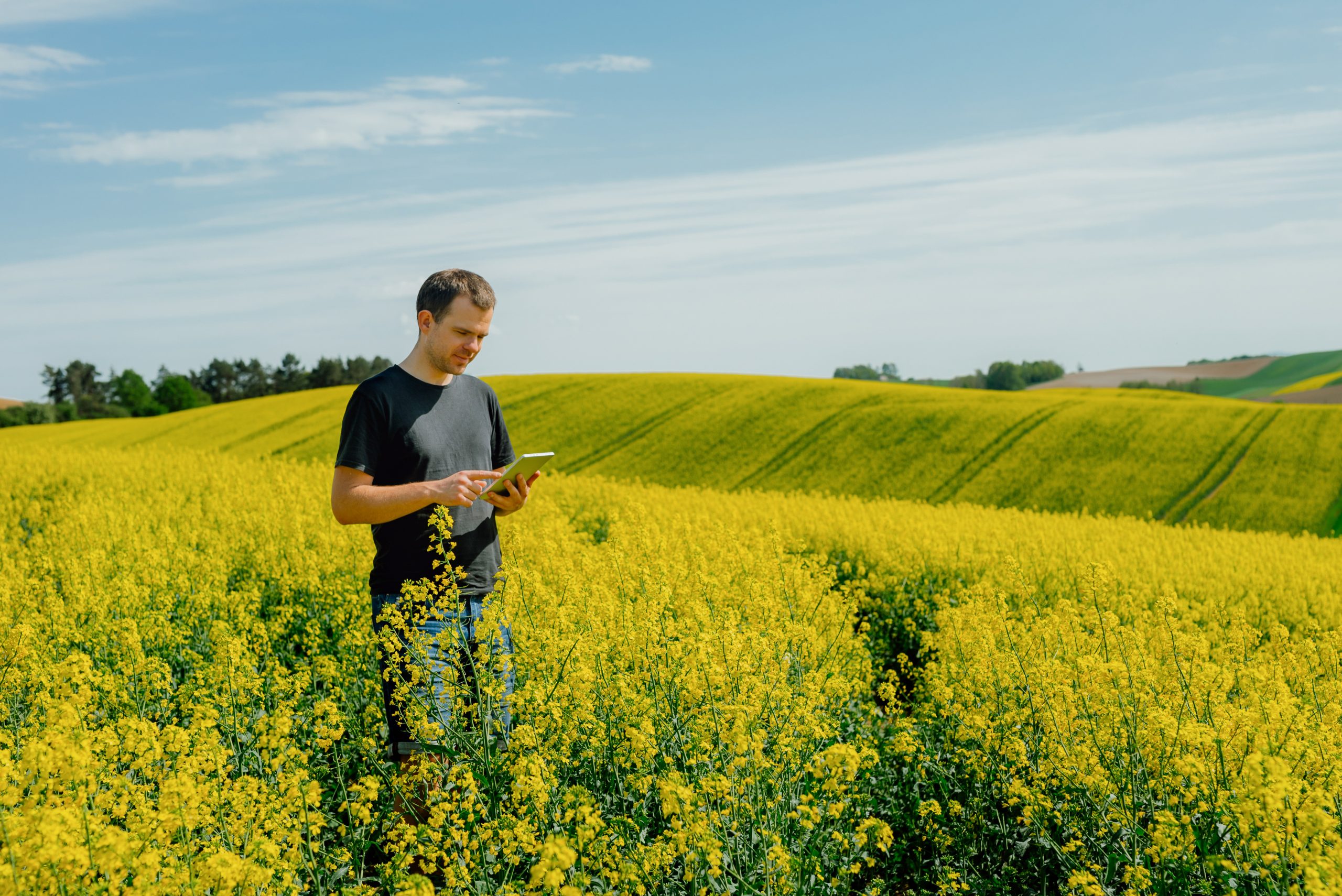With the allocation of a Greenhouse Gas (GHG) Bonus on the website OleoZE, launched in 2020, Saipol was the first industrial company to remunerate rapeseed growers who adopt cultivation methods that economise fossil-fuel energy and encourage carbon storage in the soil. The seeds collected and sold via the OleoZE solution are then used to produce low carbon footprint biofuels, achieving up to 100% greenhouse gas reduction compared to diesel fuel. For its part, Yara® France has been involved for several years in the decarbonisation of the agri-food sector, both at its production plants[1], in the fertiliser production process and in their use in the field. Thus, at the end of 2021, Yara® France launched Objectif COOlza (“Rapeseed Objective”), a nutrition initiative dedicated to rapeseed enabling farmers to reconcile yield, profitability and sustainability on their farms, thanks in particular to the use of ammonium nitrate.
[1] A more than 90% reduction in N20 emissions is achieved using state-of-the-art technology.
The link between Yara® France and Saipol was a natural one, as nitrogen-based fertilisation is an essential lever for reducing the carbon footprint of rapeseed cultivation. Thus, choosing ammonium nitrate means choosing the form of nitrogen that emits the least amount of GHG per area of use[1] and that performs best in agronomic terms[2], yield being a component of the GHG score. The use of ammonium nitrate should therefore be encouraged to accompany soil carbon sequestration practices to reduce the overall carbon footprint of rapeseed cultivation. However, despite the many benefits of ammonium nitrate compared to nitrogen solution, the latter is still the predominant form of mineral nitrogen fertiliser used for rapeseed cultivation[3].
[1] It has a carbon footprint that is 1.3 kg CO2 eq/kgN lower than nitrogen solution (source: Gestim+ references, 2020).
[2] Rapeseed has a yield +2.7 q/ha higher than nitrogen solution (source: ADA-UNIFA study, 2021).
[3] Up to 60% of the nitrogen applied to rapeseed in the major production areas of the crop (Source: Kynetec study).
This is why, from the 2022 harvest, the use of ammonium nitrate, a virtuous fertiliser from the factory to the field that reduces the carbon footprint of rapeseed by 15% compared to fertilisation with nitrogen solution, will be taken into account by Saipol in the calculation of the GHG bonus on OleoZE. The objective for the two partners is to encourage rapeseed growers to use more sustainable fertilisation practices by replacing nitrogen solution with ammonium nitrate and thus contribute to the effort to reduce the impact of agricultural production on the climate. This is only the first step in this collaboration, as Yara® has announced that it is joining forces with a Swedish cooperative to market the first volumes of decarbonised fertiliser in Europe by 2023.
About Yara®
Yara® International ASA is the world’s leading producer and marketer of mineral nitrogen fertilisers, with sales in 2021 of almost USD 16.6 billion. Yara®’s mission is both simple and very ambitious: to feed plants and thus contribute, alongside farmers, to feeding the world in a responsible manner. Our crop nutrition solutions and precision farming products enable farmers to increase their performance and improve the quality of their products, while at the same time reducing their environmental impact. Yara® is present in more than 60 countries, with 17,000 employees. Yara® France has 583 employees, 3 production plants and a 2021 turnover of 889 million euros. Two production sites are entirely dedicated to the production of fertilisers for the French agricultural market: Montoir-de-Bretagne (Loire Atlantique) and Ambès (Gironde). The Le Havre site (Seine-Maritime) produces ammonia, urea and AdBlue for industrial markets such as the automotive industry.
To find out more about Yara®, visit the website yara.co.uk.
About Saipol
Saipol, a subsidiary of the Avril Group, is the French leader in rapeseed and sunflower processing. Saipol is an active participant in the major transitions in agriculture, food and energy, and develops value-added solutions based on edible vegetable oils, protein-rich oilseed cakes and low-carbon renewable energy. The brands developed by Saipol include:
- OleoZE, a solution that remunerates with a “GHG bonus” the cultivation of rapeseed and sunflowers applying agricultural practices favouring soil conservation, and is designed to offer premium low-carbon energy to the most ambitious players in the transport transition;
- OleoVE, pre-treated oils as an alternative to palm oil, to foster the transition of refineries and biorefineries towards the production of low-carbon energy;
- Oleo100, a source of B100-type renewable energy made exclusively from rapeseed grown in France and intended for transport companies, local authorities and company vehicle fleets;
- Diester®, a biodiesel produced in France that can be used to make up 7% of the diesel fuel supplied to service stations.
To find out more about Saipol, visit the website saipol.com.


